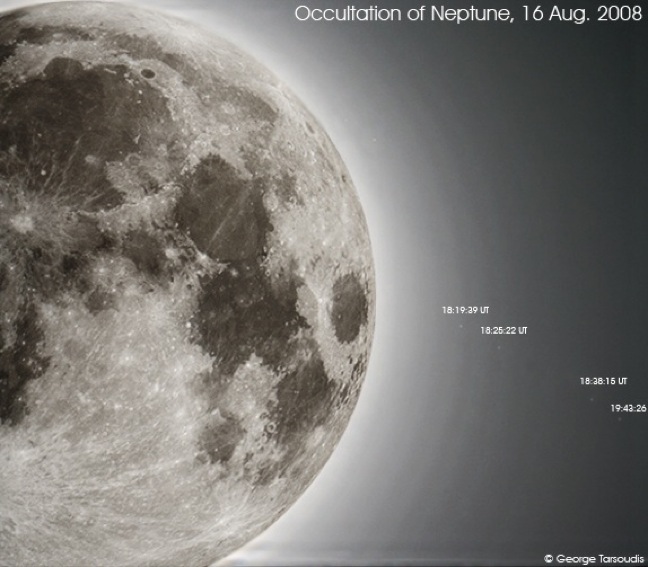August 19, 2008
An LPOD First (And Last)

image by George Tarsoudis, Alexandroupolis-Greece
Most astronomical events involving the Moon result in numerous submissions to LPOD, making it difficult to decide which to select. But George has captured a recent event that no one else seems to have noticed and has never before been submitted to LPOD. The image above documents the end of an occulation of Neptune by the Moon, with the Moon progressively moving away from the distant pale blue dot, which emerges from the Full Moon glare. As before when showing occultations, the juxtapositioning of any other night-time astronomical object with the Moon demonstrates how observationally puny they all are. There is no other night-time object with the richness of detail and fascination of constant change as the Moon. And yet the majority of amateur astronomers still seem to search (increasingly in vain because of light pollution) for faint galaxies and nebulae, or ache to observe details on tiny Mars or ovals on Jupiter. The digital camera wondrously has revealed features of these small objects and distant galaxies, but for the visible observer the Moon is the most fascinatingly complex world in the universe.
Chuck Wood
Technical Details
10 inch Newtonian @ f/6.3 with Canon EoS 350D at prime focus.
Related Links
George's new website
The title includes "(and last)" because I prefer not to receive future images of the Moon and Neptune or Pluto or Mercury or Venus...
Yesterday's LPOD: Shadowy Measures
Tomorrow's LPOD: Not an Eclipse
COMMENTS?
Register, Log in, and join in the comments.



